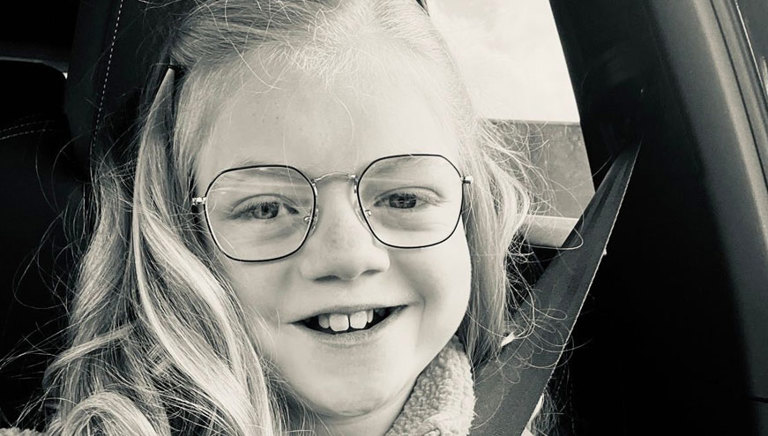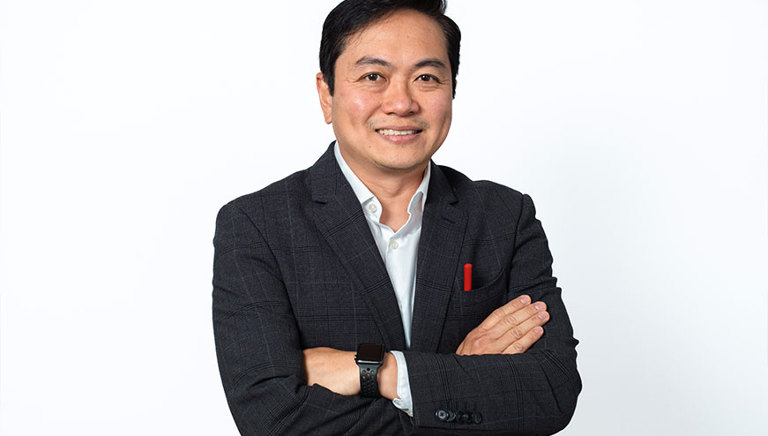My sons have taught me more than I could ever teach them
Bob Stevens is group CEO of the MPS Society and Rare Disease Research Partners. MPS diseases are a family of rare, life limiting disorders that can affect both children and adults. His sons Oliver and Samuel both have MPS II – known as Hunter Syndrome.
Bob talked to the ABPI about his family’s journey with MPS and how he’s devoted his life to helping people with these disorders.
What is MPS and how were your sons diagnosed?
Lysosomes are the mini waste factories of the body – they get rid of all the bad stuff, mainly sugars. If you have an MPS disorder you have either a faulty or deleted gene in the lysosome. The disorder can affect all areas of the body and often the brain as well.
My eldest son Oliver had a difficult birth, so he was closely monitored as a baby. When he was two the doctors picked up that he had a heart murmur, which wasn’t there before. The paediatrician happened to have seen one other case of MPS in his career, and something just rang a bell. Tests were ordered and they came back positive. Then they had to test my other son, Samuel, who was 16 weeks at the time, and he was positive too.
Overnight, our lives changed and we were thrown into a world of hospitals and disability – on a fast-track to Great Ormond Street. We were told that average life expectancy with MPS was 7-15 years old.
How did you come to be the MPS Society’s CEO?
The MPS Society helped us through the early stages and start to rebuild our lives to a new normal. I knew early on that I had to do something for people with disabilities, so I changed from my successful career in the construction business and went to work for Surrey County Council helping people with all forms of disabilities find meaningful work, so they feel more included in society. With my business knowledge, I then worked in senior roles helping charities to become more sustainable.
This led me back to the MPS Society. The original founder, Christine Lavery, asked me to take over leading it when she retired. I said no, but she and my wife, they double-teamed me into it.
Tell us about your work?
The MPS Society has now grown to become one of the largest Rare disease organisations in the world supporting people with MPS, Fabry and related diseases. We’ve also built a clinical trials support company – Rare Disease Research Partners - that supports patients to have a better experience of clinical trials and carries out patient centric research. All revenues generated go back into providing patient services. We specialise in Health Technology Assessments (HTAs – the NICE process to evaluate whether medicines provide value for money for the NHS) and advise pharmaceutical companies, patient organisations and other key stakeholders.
We co-designed the first managed access agreement for MPS treatments in the UK. At any one time we can be helping 350 patients on a clinical trial globally and using our approach has been shown to increase retention in clinical trials.
Do you think MPS might have a cure one day?
Because of the hard work of the MPS Society and innovation by pharma, some treatments have been developed and my sons are both on an enzyme replacement therapy. It helps with some aspects of MPS, but not all. My sons have still had some deterioration.
People who are rare disease advocates are very passionate – I am myself. But people in pharma clinical teams are equally as passionate – that’s why they do it.
Working on MPS, Fabry and related disease treatments is like trying to achieve the equivalent of putting a man on Mars; it’s absolute cutting-edge science and I’m inspired by great science. Even if something doesn’t work, you learn for the next generation of trials.
I give motivational talks to pharma companies to remind them that what they are doing gives the chance for a rare life lived better. Being able to do my role is a way of life and a privilege.
There are some exciting new therapies coming through now after many have failed, but they are still disease-modifying, not curative. If we’re realistic, we’re probably 20 years away from something curative because we still don’t fully understand the complexities of lysosome. I wish I’d paid a lot more attention in science.
You have been through and achieved so much – what next?
We started out being sure we were going to outlive our children. Now we’re uncertain about the future and that’s a good place for us. We’ve had to learn as a family not to look too far ahead.
When I look back on what we were told at diagnosis, to now, we are very lucky. We have always made sure we enjoy every minute with the boys – for example by having excellent family holidays, with all our extended family. We still will, with a few adjustments.
I’ve ended up with the best role in the world – and all because my sons have taught me more than I could ever teach them. They prove to me that there is always hope. Oliver is 23 and Sam is 21.
I’m known as someone who will kick doors down if necessary. I’ll keep on kicking doors down to get things done for my sons and people with rare diseases.
- Rare diseases
Last modified: 20 September 2023
Last reviewed: 20 September 2023

